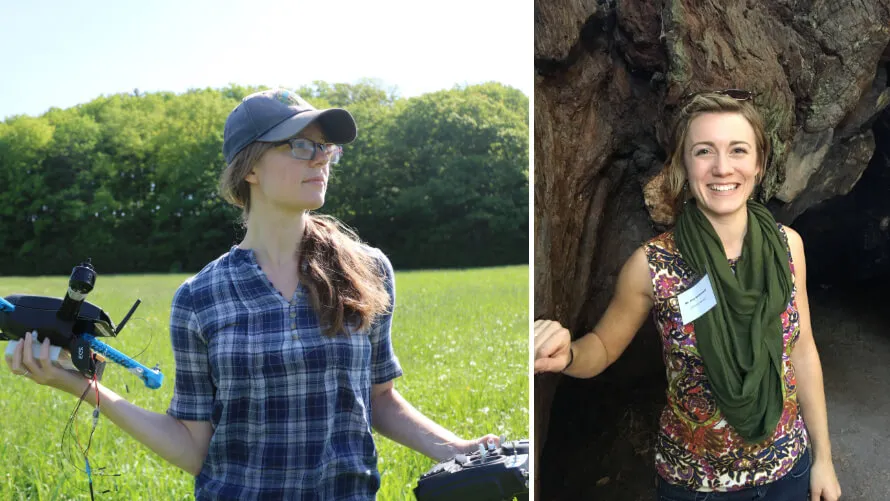Lindsay Barbieri and Alex Neidermeier, both graduate students in the Rubenstein School of Environment and Natural Resources, were awarded funding through the Clean Energy Fund for projects that support students’ vision of the University of Vermont running on clean, locally produced renewable energy.
Lindsay Barbieri
Graduate Fellow, Gund Institute for Environment
Natural Resources PhD Program, Rubenstein School of Environment and Natural Resources
Lindsay Barbieri is a PhD student at the University of Vermont working at the interface of agriculture, environment, and technology to deepen our understanding of climate change adaptation and mitigation within agroecosystems. She explores the use of information technologies to enable and support more sustainable production practices, while critically assessing their role in decision-making. Barbieri collaborates with several interdisciplinary and international working groups to address broader information technology challenges and opportunities in social-ecological systems research, resource governance, and environmental justice. Prior to becoming a PhD student at the Rubenstein School of Environment and Natural Resources, and a Graduate Fellow at the Gund Institute in 2014, Barbieri was a professional circus artist, worked on a small dairy farm, and earned her BA at Hampshire College by analyzing satellite images of landscapes on Mars for geomorphological signatures of climate change.
This project endeavors to support clean energy decision-making in agricultural production systems by advancing the development and sharing of sensor technologies and methods for measuring greenhouse gas (GHG) emissions using small unmanned aerial systems (UAS). The transformation of cow manure into an energy source is a promising way to prevent runoff and subsequent nutrient pollution, especially for dairy-heavy states such as Vermont. Indeed, “Cow Power” Renewable Energy Credits from biodigesters across the state are already a part of the University of Vermont's diversified portfolio of clean energy sources in support of the university's Climate Action Plan. Yet many knowledge and action gaps remain, including a deeper understanding of GHG emissions accounting within these production systems. This project will provide the opportunity to comprehensively consider biogas production practices within agricultural systems and improve GHG emissions measurement, all while assessing the role of information technologies in support of 'sustainable' decision-making in Vermont. This work will be carried out in collaboration with key stakeholders and established biogas and UAS working groups at the University of Vermont, across the state, and beyond.
Alex Neidermeier
Natural Resources Master’s Program, Rubenstein School of Environment and Natural Resources
Alex grew up near Asheville, North Carolina, and later graduated with a degree in Environmental Studies from UNC-Asheville. While serving in the Peace Corps in Mali and Burkina Faso, she gained an immense appreciation for trees in her new semi-arid homes, planting hundreds of economically valuable moringa, baobab, and acacia trees with a local women’s organization. She became interested in the connections between forests and climate change while working as the SilvaCarbon Africa program manager for the US Forest Service International Programs, supporting countries in the implementation of their climate change mitigation strategies. Her interest in forest health brought her to Dr. Kimberly Wallin’s lab, where she has been researching a biological control for the exotic invasive insect, the Hemlock Wooly Adelgid (HWA).
The grant from the Clean Energy Fund will be used to support her research investigating the risks and opportunities for using diseased wood in the wood pellet industry. The research focuses on the northeastern US, an area likely to be at high-risk for forest pests in a changing climate and highly motivated in its use of renewable energies.
